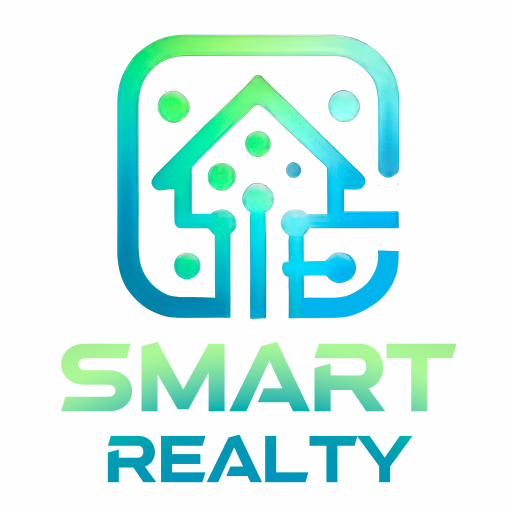Blockchain technology is transforming the real estate industry by revolutionizing the way transactions are conducted. With its unparalleled security and transparency features, blockchain offers a more secure and cost-effective solution for real estate transactions. By leveraging its tamper-proof ledger and decentralized system, blockchain technology has the potential to increase transparency, reduce costs, and enhance trust in the overall process.
Key Takeaways:
- Blockchain technology brings enhanced security and transparency to real estate transactions.
- It is a decentralized digital ledger that verifies and records transactions securely.
- Increased transparency in real estate transactions reduces costs and builds trust.
- Blockchain technology reduces fraud by providing a tamper-proof record of transactions.
- Smart contracts automate and streamline real estate processes, improving efficiency.
What is Blockchain and How Does it Work?
Blockchain is a decentralized digital ledger that securely and transparently records transactions. It revolutionizes the way transactions are conducted, making them more secure and efficient. By leveraging a decentralized ledger, blockchain eliminates the need for a central authority, ensuring the integrity and transparency of transactions.
When a transaction occurs, it goes through a validation process by multiple nodes in the blockchain network. These nodes verify the transaction and add it to a block. Each block contains a unique code called a hash, which ensures the integrity of the data and prevents tampering. Once a block is added to the blockchain, it becomes a permanent and tamper-proof record.
The decentralized nature of blockchain is what sets it apart. Instead of relying on a single central authority, blockchain uses a network of nodes to validate and confirm transactions. This makes it highly secure and resistant to hacking or fraud attempts. Miners play a crucial role in the blockchain network by verifying and adding new transactions to the blockchain through a process known as mining.
During the mining process, miners compete to solve complex mathematical problems. The first miner to solve the problem successfully gets the chance to add the new block to the blockchain. This not only adds new transactions but also ensures the overall security and integrity of the blockchain network.
Blockchain technology has transformed the way transactions are conducted, offering a secure, transparent, and efficient alternative to traditional systems. Its decentralized nature, tamper-proof ledger, and validation by nodes and miners make it a powerful tool for various industries, including real estate, finance, supply chain, and more.
| Benefits of Blockchain | Applications of Blockchain |
|---|---|
|
|
Real Estate Transactions and the Need for Transparency
Transparency plays a crucial role in real estate transactions, serving as a foundation for trust and cost reduction. Unfortunately, the lack of transparency within the real estate industry has led to mistrust, uncertainty, and increased costs for all parties involved.
However, blockchain technology has the potential to address these issues by providing a transparent and tamper-proof record of property information and transaction history. Utilizing a decentralized ledger, blockchain ensures that all transactions are recorded in a secure and immutable manner, eliminating the risk of fraud and manipulation.
One of the key features of blockchain technology that contributes to transparency is the use of smart contracts. These intelligent contracts automate the execution of contractual terms based on predefined conditions, creating a streamlined and efficient ecosystem for real estate transactions.
By leveraging smart contracts, real estate transactions can be completed with reduced reliance on intermediaries, accelerating the overall process. This not only saves time but also lowers transaction costs, benefiting both buyers and sellers.
The increased transparency offered by blockchain technology and smart contracts has significant benefits for the entire real estate industry. By reducing the role of intermediaries, trust is enhanced, and costs are lowered. Buyers and sellers can confidently navigate the transaction process, knowing that the information they interact with is transparent, reliable, and secure.
Transparency in real estate transactions is key to fostering trust, mitigating fraud, and improving efficiency. With the advent of blockchain technology and smart contracts, the real estate industry can experience a fundamental transformation towards a more transparent and trustworthy ecosystem.
Overall, the integration of blockchain technology and smart contracts into real estate transactions has the potential to revolutionize the industry by bringing transparency, trust, and efficiency to the forefront. As this technology continues to evolve, we can anticipate a future where real estate transactions are conducted with utmost transparency and integrity.


The Benefits of Transparency in Real Estate Transactions:
- Builds trust between all parties involved
- Reduces the risk of fraud and manipulation
- Increases confidence in the transaction process
- Lowers costs by streamlining the process
- Eliminates the need for excessive intermediaries
How Blockchain Reduces Fraud in Real Estate Transactions
Real estate transactions are vulnerable to various forms of fraud, including identity theft, title fraud, and forgery. Fortunately, blockchain technology offers a powerful solution to mitigate these risks and safeguard the integrity of real estate transactions.
Blockchain technology provides a secure and transparent record of transactions, making it difficult for fraudsters to manipulate or forge data. Every transaction recorded on the blockchain is immutable, meaning it cannot be altered or tampered with. This tamper-proof feature instills confidence in the accuracy and authenticity of real estate transactions.
In addition to its inherent security features, blockchain technology also reduces fraud through the use of smart contracts. These automated contracts enforce predefined terms and conditions, eliminating the need for intermediaries who are often targeted by fraudulent activities. By removing intermediaries, smart contracts streamline the transaction process while reducing the opportunities for fraud.
“Blockchain technology provides a secure and transparent record of transactions, making it difficult for fraudsters to manipulate or forge data.”
The increased transparency offered by blockchain technology is a significant deterrent to fraudulent activities. With a transparent and tamper-proof record of property information and transaction history, buyers and sellers can trust the accuracy and completeness of the data involved. This transparency minimizes the risk of falling victim to fraudulent schemes, ensuring a more secure real estate transaction process.
By leveraging blockchain’s fraud prevention capabilities, the real estate industry can protect itself from various fraudulent practices. The combination of enhanced security, transparency, and the automation provided by smart contracts makes blockchain a powerful tool for combating fraud in real estate transactions.
Streamlining Real Estate Transactions with Smart Contracts
Smart contracts are revolutionizing the way real estate transactions are conducted, enhancing efficiency, accuracy, and security. By eliminating the need for intermediaries, smart contracts automate contract terms, streamlining various processes in real estate, such as property transfers, rental agreements, and escrow services. This automation reduces the risk of errors, delays, and costly disputes.
With smart contracts, parties can define pre-agreed conditions that must be met for the contract to execute automatically. For example, in a real estate transaction, the smart contract can include conditions such as the completion of a property inspection, the transfer of funds, or the verification of legal documents.
The use of smart contracts in real estate offers significant benefits:
- Increased Efficiency: Smart contracts automate time-consuming tasks, reducing the need for manual intervention. Property transfers, rental agreements, and other transactions can be executed seamlessly, saving time and effort for all parties involved.
- Reduced Transaction Costs: By eliminating intermediaries such as real estate agents, lawyers, and escrow agents, smart contracts lower transaction costs. Parties can complete transactions directly, without incurring additional fees associated with traditional methods.
- Enhanced Security: Smart contracts leverage blockchain technology, which provides a secure and immutable record of transactions. The decentralized nature of blockchain ensures that the contract terms and transaction details are tamper-proof and transparent.
- Elimination of Errors and Delays: With smart contracts, human errors and delays are minimized. Smart contracts execute automatically once the predefined conditions are met, reducing the risk of misunderstandings and disputes.
Streamlining real estate transactions with smart contracts not only enhances efficiency and automation but also strengthens trust among all parties involved. The secure and transparent nature of smart contracts increases confidence in the transaction process, attracting more participants and fostering growth in the real estate industry.
Case Study: Smart Contract-enabled Escrow Services
To illustrate the efficiency and automation brought by smart contracts, let’s explore a case study on smart contract-enabled escrow services in real estate transactions.
“Smart contracts have transformed our escrow services, creating a seamless and secure process for real estate transactions. With smart contracts, we can automate the release of funds and ensure that all conditions of the transaction are met before the funds are transferred. This eliminates the need for traditional escrow agents and reduces the risk of fraud and disputes. Our clients have experienced significant time and cost savings due to the efficiency of smart contracts.”
| Traditional Escrow Services | Smart Contract-enabled Escrow Services |
|---|---|
|
|
As shown in the table, smart contract-enabled escrow services offer a streamlined and secure alternative to traditional escrow methods. The automation and transparency provided by smart contracts result in faster transactions, lower costs, and increased peace of mind for all parties involved.


Conclusion
Blockchain technology is revolutionizing real estate transactions by providing enhanced security, transparency, and efficiency. The decentralized and tamper-proof nature of blockchain ensures the integrity of transactions, reducing fraud and increasing trust.
By leveraging blockchain’s unique features, such as its immutable ledger and automated smart contracts, real estate transactions become more streamlined and cost-effective. The elimination of intermediaries not only reduces transaction costs but also accelerates the process, benefiting all parties involved.
Increased transparency is another significant advantage of blockchain technology in real estate transactions. With a transparent and tamper-proof record of property information and transaction history, buyers and sellers can have greater confidence, reducing uncertainty and improving overall efficiency.
As blockchain technology continues to evolve, its potential applications in real estate are likely to expand even further. This transformative technology creates new opportunities for growth and innovation in the industry, paving the way for a future where real estate transactions are more secure, transparent, and efficient.
FAQ
How does blockchain technology enhance security and transparency in real estate transactions?
Blockchain technology provides enhanced security and transparency in real estate transactions by leveraging its decentralized and tamper-proof ledger. Each transaction is verified and recorded by multiple nodes in the network, ensuring its integrity and preventing tampering. The decentralized nature eliminates the need for a central authority, making it highly secure. The transparent and tamper-proof record of property information and transaction history provided by blockchain instills trust and reduces costs in real estate transactions.
Can blockchain technology reduce fraud in real estate transactions?
Yes, blockchain technology can significantly reduce fraud in real estate transactions. Each transaction recorded on the blockchain is immutable, making it difficult to manipulate or forge data. Additionally, smart contracts, which automate contract terms without the need for intermediaries, further reduce fraud by eliminating the risk of errors and delays. The increased transparency and security provided by blockchain technology instill confidence in real estate transactions and mitigate the risk of fraud.
How do smart contracts streamline real estate transactions?
Smart contracts streamline real estate transactions by automating various processes such as property transfers, rental agreements, and escrow services. By automating these processes, smart contracts increase efficiency, reduce transaction costs, and eliminate the risk of errors and delays. Parties involved in the transaction adhere to the predefined terms of the smart contract, providing a more secure and efficient way to conduct real estate transactions. The use of smart contracts in real estate can significantly streamline the transaction process and reduce the need for intermediaries.
What are the benefits of increased transparency in real estate transactions?
Increased transparency in real estate transactions benefits all parties involved. It reduces the role of intermediaries, leading to lower costs. Transparency builds trust among buyers, sellers, and the entire real estate industry by providing a tamper-proof record of property information and transaction history. This transparency eliminates mistrust and uncertainty, improving the overall efficiency of real estate transactions.
How does blockchain technology work in real estate transactions?
Blockchain technology works in real estate transactions by verifying and recording each transaction through multiple nodes in the network. Each transaction is stored in a tamper-proof block, ensuring its integrity. The decentralized nature of blockchain eliminates the need for a central authority, making it highly secure. Nodes in the network validate and confirm transactions, while miners verify and add new transactions to the blockchain. This process, known as mining, maintains the security and integrity of the blockchain network.

